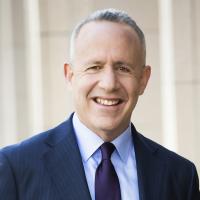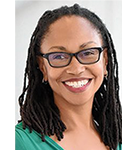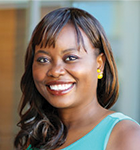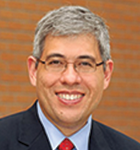Racial Justice Speaker Series 2020-21

As protests over police brutality and systemic racism have swept the nation, UC Davis School of Law has reaffirmed its longtime commitment to racial justice. Throughout 2020-21, the law school will offer a Racial Justice Speaker Series examining some of the most urgent issues facing our nation and world today.
The series has gathered leading voices on civil rights, criminal justice, and civic and governmental responsibility. The goals are to inform, enlighten, and - most important - engage in meaningful conversation with our King Hall community and the larger public.
Click here to watch previous recorded Racial Justice Speaker Series sessions
Sept. 16, 2020
12:15-1:15 p.m. PST
"A Riot is the Language of the Unheard: Is Racial Justice Possible in America?"

Brendon Woods
Alameda County Public Defender
Appointed in December 2012, Brendon Woods is the first Black Chief Public Defender in Alameda County’s history and is currently the only Black Chief Public Defender in California. Woods has 20 years of experience in criminal defense litigation and leads a staff of 170 in providing superior legal defense in more than 3,000 new files monthly.
Woods is committed to providing holistic representation to his clients and is a nationally recognized leader in public defense. He is a board member and former president of the California Public Defenders Association, and was honored with the Harvard Law School Wasserstein Public Interest Fellowship for outstanding public service.
From a young age, Woods' formative experiences with law enforcement steered his life and career toward public defense. He feels fortunate to fight for those battling systems of oppression, and strives to reshape the discourse and nature of public defense and criminal justice as a whole.
Sept. 23, 2020
12:15-1:15 p.m. PST
"Protests and Pandemic: An Equity Response"

Darrell Steinberg
Mayor of Sacramento, UC Davis Law ‘84
Darrell Steinberg is one of Sacramento’s most accomplished public servants, serving the Sacramento community for more than 20 years. He is a graduate of the UC Davis Law Class of 1984.
Steinberg served on the Sacramento City Council and later ran for State Assembly and then State Senate, becoming the first Sacramentan to serve as President of the Senate in more than 125 years.
During his tenure in the Legislature, Steinberg championed economic development, education reform, building sustainable communities and major investments in healthcare and education.
With Steinberg as mayor, development will soon start on the long-vacant railyard north of downtown and Sacramento will become the next Major League Soccer city.
Oct. 21, 2020
12:15-1:15 p.m. PST
"The Family in Inequality Debates"

Robin Lenhardt
Professor, Georgetown Law
Robin A. Lenhardt was formerly a Professor of Law and Faculty Director of the Center on Race, Law and Justice at Fordham Law School. Professor Lenhardt specializes in matters pertaining to race, family, and citizenship. Before entering legal academia, Professor Lenhardt held a number of positions in the private and non-profit sectors.
A law clerk to U.S. Supreme Court Justice Stephen G. Breyer and Judge Hugh Bownes of the U.S. Court of Appeals for the First Circuit, Professor Lenhardt was formerly a Counsel in the Washington, D.C. office of Wilmer, Cutler & Pickering, where she was a member of the litigation team that defended the University of Michigan in the Grutter v. Bollinger and Gratz v. Bollinger affirmative action lawsuits.
Professor Lenhardt received a Skadden Foundation Fellowship to work as a staff attorney for the National Lawyers’ Committee for Civil Rights and was employed as an attorney advisor in the U.S. Department of Justice’s Office of Legal Counsel. She later returned to DOJ to review civil rights issues as part of President Barack Obama’s transition team.
Oct. 27, 2020
12-1 p.m. PST
"The Trauma of Injustice"

Angela Onwuachi-Willig
Dean, Boston University School of Law
A graduate of Grinnell College (B.A.), University of Michigan Law School (J.D.), and Yale University (Ph.D.), Angela Onwuachi-Willig is Dean and Professor of Law at Boston University School of Law. Previously, she served as Chancellor’s Professor of Law at the UC Berkeley.
She is author of According to Our Hearts: Rhinelander v. Rhinelander and the Law of the Multiracial Family and numerous articles in leading law journals like the Yale Law Journal, California Law Review, Virginia Law Review, Georgetown Law Journal, Northwestern University Law Review, and Vanderbilt Law Review.
She is the recipient of numerous teaching awards, a former Iowa Supreme Court finalist, a recipient of Law and Society Association’s John Hope Franklin Award, an elected member of the American Law Institute, and the first professor (along with her co-author Dean Mario Barnes of the University of Washington School of Law) to receive both the AALS’s Clyde Ferguson and Derrick Bell Awards. Most recently, she was honored as an EXTRAordinary Woman in Boston in spring 2020.
Additionally, she and four black women decanal colleagues—Danielle Conway (Penn-State Dickinson Law), Danielle Holley-Walker (Howard Law), Kim Mutcherson (Rutgers Law), and Carla Pratt (Washburn Law)—were selected to be the inaugural recipients of the AALS Impact Award in recognition of the extraordinary work they performed in collating the Law Deans Antiracist Clearinghouse Project in January 2021.
Co-sponsored by:

Nov. 19, 2020
12-1 p.m. PST
"When Public Defenders Fall Short"

Irene Oritseweyinmi Joe
Professor, UC Davis School of Law
Professor Irene Oritseweyinmi Joe will discuss the public defender’s role in addressing racial injustice and the ways in which it may fall short. She will use her own experience as a public defender to provide context to her research that: (1) examines how the institution falls short in representing its clients and (2) how the institution falls short in caring for the attorneys and support staff who aim to provide quality representation. As her scholarship summarizes, although these shortcomings cannot be laid squarely at the feet of public defenders because of state funding decisions and prosecutorial discretion, they do require some reflection from those committed to providing a quality defense to indigent clients. Joe argues that only after this reflection can the public defender institution even come close to fulfilling its obligation to provide a barrier to the racial abuse that can result from a state government's improper exercise of power on its own citizenry.
Jan. 12, 2021
12-1 p.m. PST
"Racial Reckoning with Economic Inequities: Board Diversity as a Symptom and Partial Cure"

Lisa Fairfax
Professor, George Washington University Law School
In response to the racial reckoning related to the killings of George Floyd, Breonna Taylor and other unarmed Black men and women by police during the summer of 2020, many corporations publicly expressed their commitment not only to grappling with racial inequities in the economic sphere, but also to increasing racial diversity on their boards, with particular emphasis on Black directors. Professor Fairfax argues that while board diversity is responsive to the call for racial equity, we may be unable to heed that call without more extensively addressing the racial bias that pervades existing board recruitment and selection practices.
Jan. 25, 2021
12-1 p.m. PST
"Racial Disparities in Yolo County: the Effects of Systemic Racism"

Tracie Olson
Yolo County Public Defender
Tracie Olson will discuss the effects of systemic racism in Yolo County and ongoing efforts to address our biased policies and protocols.
March 3, 2021
12:15-1:15 p.m. PST
"Chokehold: Policing Black Men"

Paul Butler
Professor, Georgetown Law
The presentation focuses on policing in communities of color, incorporating a range of opinions about what the problems - and solutions - are. The African-American male experience in the criminal legal process is examined through an intersectional lens, including how anxiety about Black men helped create mass incarceration and "legal" police violence in the US.
March 8, 2021
12-1 p.m. PST
" Implicit Racial Bias and Decision Making in the Criminal Justice System"

Song Richardson
Dean, UC Irvine Law
Investigating, charging, prosecuting, defending, judging, sentencing—no decision point in the criminal justice system is immune from the impact of implicit (i.e. unconscious) racial bias. Dean Richardson will discuss what cognitive and social psychology can teach us about unconscious bias throughout the progress of a criminal case. The talk will address how these biases are formed, how they affect behaviors and perceptions, and how to safeguard against their influence.
March 31, 2021
12:15 - 1:15 p.m. PST
"The Legal History of Discrimination Against Asians: A Perspective on the Atlanta Murders"

Gabriel "Jack" Chin
Professor, UC Davis School of Law
April 7, 2021
12:15 - 1:15 p.m. PST
"'Citizenism' and the Shackles of Borders"

Raquel Aldana
Professor, UC Davis School of Law
The enforcement of borders has always been punitive and racialized. Yet, immigration law’s exceptionalism and bounded notions of social membership has left the other – the “alien” – largely unprotected from the shackles of borders. This presentation will argue why any racial justice project must embrace the dismantling of citizenism -- a view in which “ U.S. citizenship” is foundational to the distribution of rights – as central to the transformation of the United States into a more just nation.
